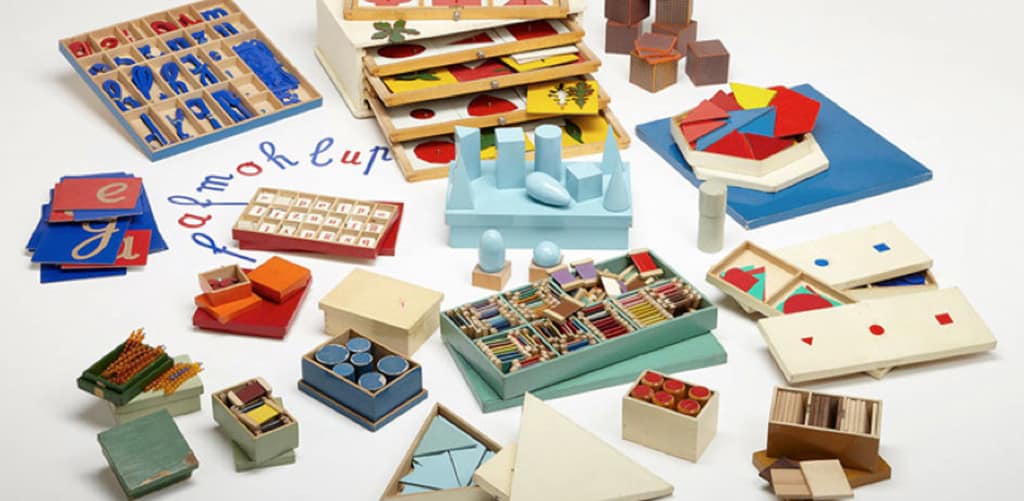
08 Mar Montessori tools in the classroom
Montessori education is a unique approach to learning that emphasizes the use of specially designed tools and materials to facilitate learning. These tools are designed to be self-correcting, allowing children to learn through exploration and discovery. Here are some of the most common Montessori tools used in the classroom:
- Sensorial Materials: Sensorial materials are designed to help children develop their senses, including touch, sight, and hearing. These materials include blocks of different sizes and shapes, color tablets, and sound cylinders.
- Practical Life Materials: Practical life materials are designed to help children develop practical skills and independence. These materials include items such as buttons, zippers, and tying laces, as well as cleaning tools like brooms and mops.
- Language Materials: Language materials are designed to help children develop language skills. These materials include sandpaper letters, which help children learn the shapes and sounds of letters, as well as picture cards and language games.
- Mathematics Materials: Mathematics materials are designed to help children develop mathematical skills. These materials include number rods, which help children understand the concept of quantity and number, as well as bead bars and cards, which help children learn addition, subtraction, and other mathematical operations.
- Cultural Materials: Cultural materials are designed to help children learn about the world around them. These materials include maps, globes, and puzzle maps, as well as items that represent different cultures, such as dolls and artifacts.
- Art Materials: Art materials are designed to help children express their creativity and develop fine motor skills. These materials include paint, clay, and other art supplies.
All Montessori tools are designed to be simple, beautiful, and functional. They are carefully crafted to be aesthetically pleasing and to invite children to explore and learn. The use of these tools in Montessori classrooms fosters a sense of curiosity, exploration, and self-directed learning that helps children develop a love of learning that will last a lifetime.
In conclusion, Montessori tools are an essential part of the Montessori approach to education. They are carefully designed to help children develop their senses, practical skills, language, mathematics, cultural awareness, and creativity. These tools help children learn through exploration and discovery, fostering a love of learning that will last a lifetime.

No Comments